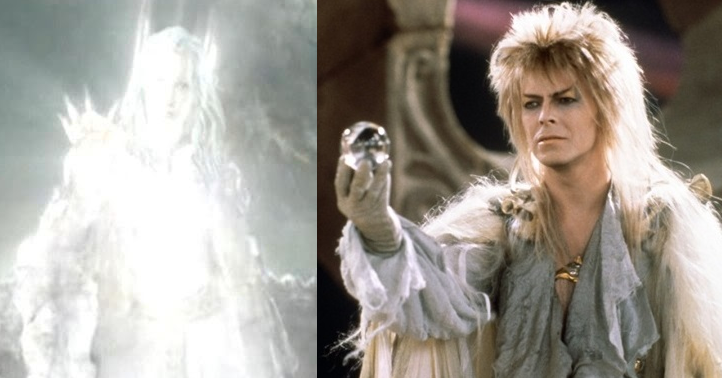Subject: My own pet theory... (plus some rebranding)
Author:
Posted on: 2015-01-09 16:36:00 UTC
Coming to you live from the dimmer recesses of my brain and bits of a mostly-forgotten physics education, may I present:
The magic of Harry Potter is actually a quantum field effect with observable results in a macro-scale universe.
Hear me out on this. The Potterverse is a strange, strange place at the best of time, but one of the more consistent bits of weirdness is the idea - patently wrong - that "Muggle technology" doesn't work at Hogwarts. Okay, I get that J.K. probably meant "Muggle science" by that (which doesn't really work either, unless - ah, but that's a discussion for another day), but she used a specific term and I'm running with it.
See, Muggle technology does work in the Wizarding World. We see the great spinning gear setups and locking-bars of the vault doors at Gringotts - mechanisms that work in harmony with magical defences, including whatever the Thief's Downfall is and a dragon (of the non-literal-five-headed variety). Hagrid has a dirty great crossbow firing bolts the size of a small tree, and crossbows (even hand-draw ones) are complicated bits of kit. The Flying Ford Anglia seems perfectly content in the grounds, though I'm not too super-duper sure that that one counts since it's kept going by magic kind of sorta maybe a bit but the headlights work and guh weird.
So, we know that mechanical stuff works. We also see in the films that Luna's knackered Converse (her trackie bottoms tucked in socks, alas, remain unpictured; anyone getting that reference deserves prizes) don't dissolve or anything, so we can safely assume that modern materials like plastics and so forth aren't subject to the effects. However, I'd wager that with the advent of portable electronics - presumably battery-operated torches, Walkmans, boomboxes, digital alarm clocks, and so forth, I mean, it's set from the early-Seventies to mid-Nineties - stuff started going haywire. Why?
Field interference.
See, if we look at magic as an observable phenomenon able to be replicated under laboratory conditions, which it is, assuming there's a wizard in the lab, it becomes obvious. "Magic" is some sort of deeply weird quantum field - and since every field has an associated particle, that's what is interacting with the electronic artifacts brought into Hogwarts by Muggleborn students. If we also assume that magic particles - which I'll call "thaums" for convenience and because I, like everyone else here, am a colossal nerd - act like neutrinos, permeating the world around them and passing through like it ain't no thang. However, they disrupt other fields... like the electromagnetic field, for instance. Like the one you use to read this and parse it into knowledge, also known as brain activity.
Major disruptions would probably cause strokes and so forth, but there's going to be a subset of people who can use it for some biological advantage. But that brings up the old saw of "Why isn't magic evolutionarily selected for?" To which I respond: see previous sentence. Perhaps the rates of strokes and brain damage and so forth were too great in those hypersensitive to this field - something that, even after the advent of effective medical care (which, for all its faults, the Wizarding World got to long before the Muggle one did) - meant that for the longest time, the trait was simply unprofitable from a genetic standpoint. But then someone figures out a healing spell, and everything changes.
BTW, healing spells and stuff that directly affects living matter, like transfiguration? I'd wager that was the first stuff to be discovered... though probably after some kind of proto-Killing Curse. People are warlike. I haven't got that much more to say on that, tbh. It doesn't interest me
Now, though... now there are effective treatments. It's like a genetic defect that people live with, like a tendency towards sickle-cell anaemia or something, it just happens to come with the side effects of flying broomsticks and magical creatures (which I accept this theory does little to explain, though I'd wager they came first). Magic users are, through good old genetic altruism, allowing other magic users to survive and thrive, getting a hold of their powers so that their heads do not a splode. Perhaps that's what Merlin was, the last of the really sensitive wizards. Perhaps magic's slowly coming back, finding a level between Muggle and "Ka-Boom Oopsie There Go My Eyeballs" that's suitable for further recreation.
There's an awful lot of perhapses here, but I think it's okay.
Also, this is wobblestheclown, rebranded and revamped and hopefully less of an angry tosspot this time around.
=]
